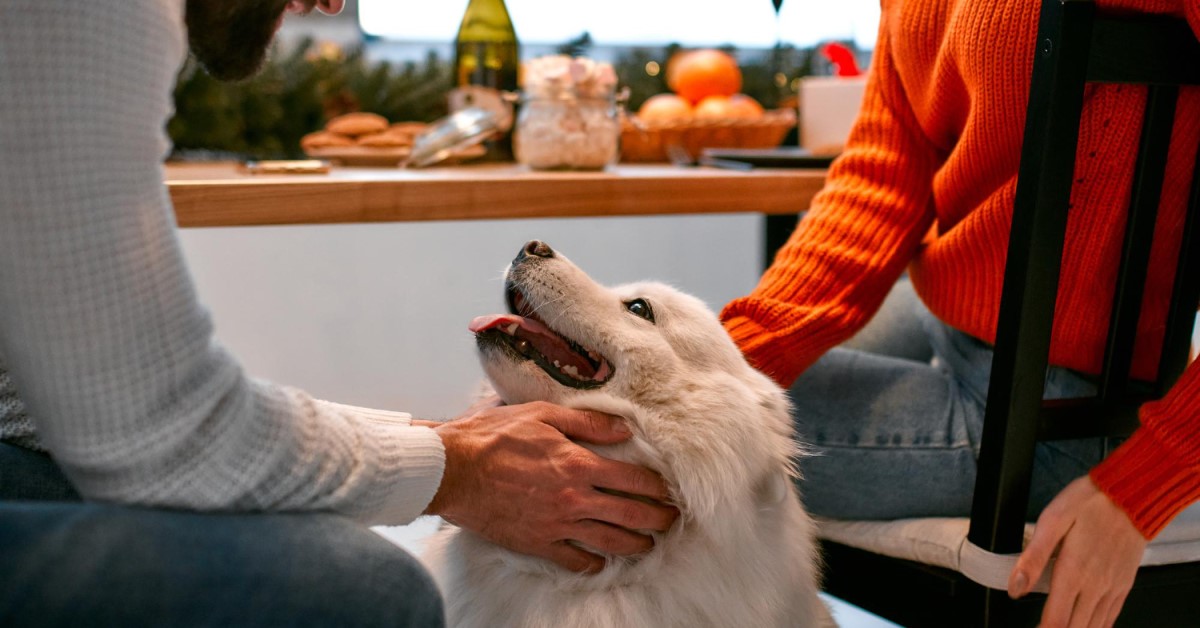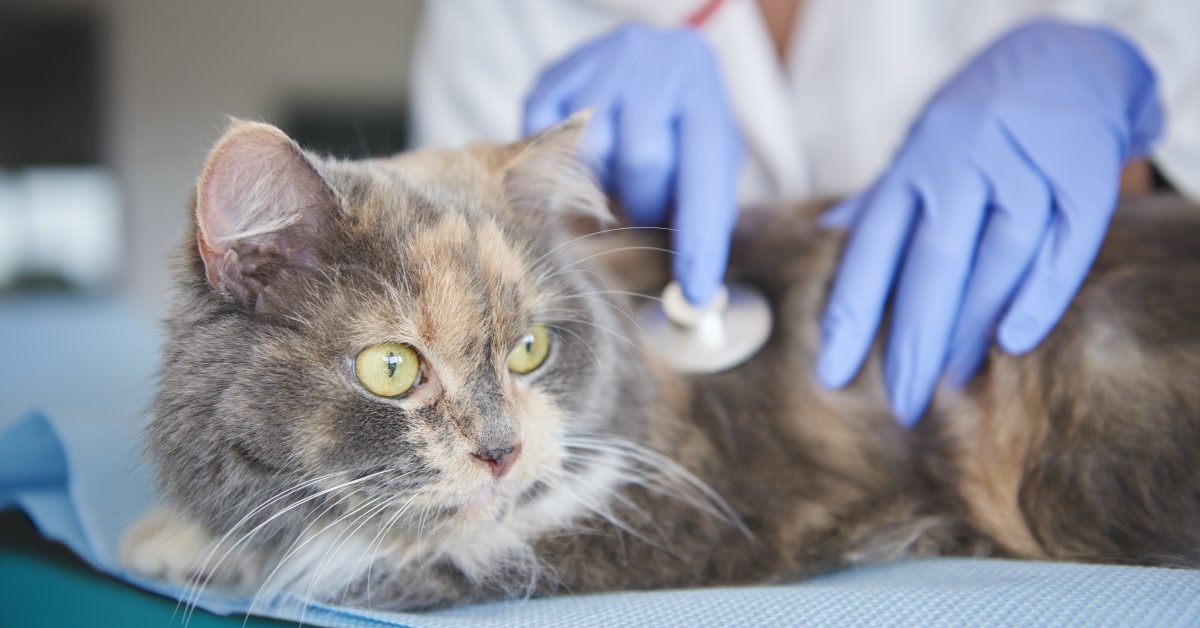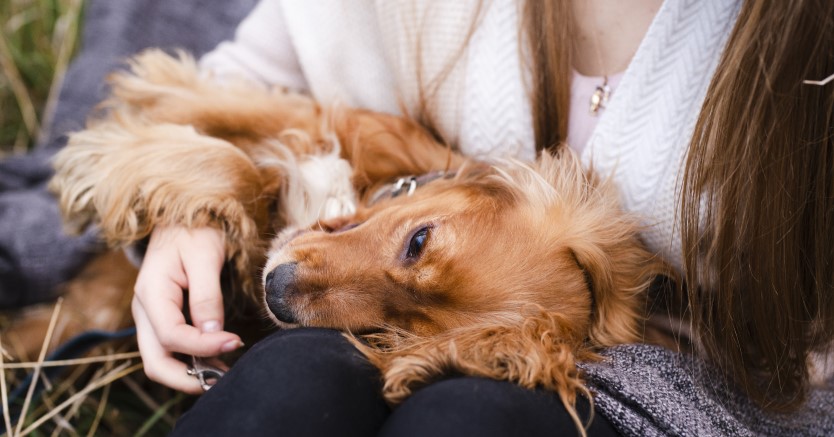Christmas Dinner Leftovers: What to Feed and Not Feed Your Pet
This holiday season, know what is and isn’t safe to feed your pet from your Christmas dinner table.

Leftovers are one of the best parts of Christmas dinner. Whether it’s a quiche using leftover ham, a savory pie stuffed with leftover veggies, or a sweet cranberry salad topping, there are many tasty ways to use up your leftovers. You can also enjoy giving your pet samples of the feast but use caution. There are some Christmas dinner leftovers not suitable for cats and dogs. Here’s a look at what to feed and not feed your pet this holiday season.
What to Feed Your Pet
1. Turkey
The turkey acts as the centerpiece of many Christmas dinner tables. After the family has finished eating, consider skinning and deboning a portion of turkey for your pet. Lean, all-natural turkey is an excellent source of protein and can be a great snack for most pets with the right precautions. Remove the skin as it contains unhealthy fat. Remove the bones to avoid injury to the mouth and prevent a choking hazard.
2. Some Fruits and Vegetables
Many fruits and vegetables are considered safe for pet consumption. Fall and winter fruits like squash, pumpkin, broccoli, and green beans can be a vitamin-rich treat for pets. Fruits like apples can also be healthy but carefully remove the stem, core, and seeds. If possible, feed your pet plain portions of fruits and vegetables without added salt or seasonings.
3. Salmon
Fish is a common alternative to traditional turkeys and hams on Christmas. The best part of having a fish entrée like salmon is that your pets can enjoy a few nibbles too. Salmon is a healthy protein choice packed with amino acids essential for growth and development. Salmon also promotes cognitive function, healthy digestion, and a shiny coat. Avoid feeding your pet raw or smoked salmon as they can cause illness.
4. Beef
If your Christmas dinner entails any type of beef roast, consider shaving off a few slices for your pet. Lean beef is safe for pets to eat and can provide a hefty portion of protein, vitamins, and minerals. However, beef should be fed to animals plain, without any added seasonings or sauces. Also, be sure to remove any excess fat or bones that may be difficult for your dog to digest.
5. Cranberry Sauce
While most sweets are not suitable for pets, there are some exceptions. Cranberry sauce in small quantities is safe for dogs to eat. However, as cranberry sauce contains high amounts of sugar, you’ll want to limit it to just a couple of tablespoons. If you have whole cranberries, try pureeing them or cooking them in a bit of water before serving them to your pet. Steer clear of cranberries containing sweeteners like xylitol.
What Not to Feed Your Pet
1. Meat Bones
It makes sense that you’d want to feed your pet a bone, but cooked bones from Christmas turkeys, chickens, or beef cuts are never safe. Once cooked, they become brittle and can splinter easily. Turkey bones are also hollow, which increases the risk of splitters. Raw bones can also pose certain risks to pets and should be avoided.
2. Garlic, Onions, Shallots, and Leeks
Some herbs and vegetables, such as garlic, onions, shallots, and leeks, can be toxic to dogs in the right quantity. On Christmas, you may find these ingredients in popular holiday dishes like stuffing, gravy, and bread sauce. Be cautious when feeding your pet any leftovers that may contain these ingredients.
3. Nuts
Almonds, pistachios, and other types of nuts are a festive addition to many holiday dinners. While nuts may seem like an unlikely hazard, they can potentially cause an upset stomach or severe throat obstruction. Some nuts, such as certain walnuts and macadamias, can actually be toxic to pets and cause seizures and neurological problems.
4. Alcohol
Wine, beer, and other types of alcohol are commonly present at holiday gatherings. While most people know not to give their pets alcohol from the bottle, it’s important to remember that many Christmas dishes may also contain alcohol, such as eggnog, rum truffles, and bourbon sauce-topped desserts.
5. Chocolate
Chocolate has long been known to be toxic to pets, causing harmful symptoms that affect the intestinal system, neurological system, and heart. Avoid giving your dog any desserts containing chocolate, such as Christmas cakes, Christmas puddings, or other desserts or candies. In addition, avoid desserts that contain raisins, mincemeats, or sultanas, as they can make your pet seriously ill.
Other Pet-Friendly Christmas Food Tips
-
Keep beverages out of reach of pets that contain coffee, cola, or other caffeinated drinks.
-
Carefully dispose of wrappers from candies and other goodies you may receive on Christmas.
-
Ask all holiday visitors to avoid feeding your pets to prevent illness or injury to your animals.
-
Keep your pets out of the busy kitchen to avoid burns and other accidents.
-
Do not leave burning candles unattended on the Christmas dinner table, as your pet could accidentally knock them over.
-
Do not leave trash where your pet can easily get into it and potentially eat something harmful or toxic.
-
Dispose of hazardous leftovers, such as bird carcasses, properly and in secure bags that animals cannot easily break into.
This holiday season, include your beloved pets in the festivities by feeding them a few bites of Christmas dinner leftovers. With the proper precautions, your pet can sample some tasty holiday dishes happily and safely.
Ready to start saving money on pet wellness care?
Then take a look at Mint Wellness, the pet wellness plan that provides fast reimbursement on routine pet care. Save on vaccinations, wellness exams, preventatives, dental, and more!
Learn More


